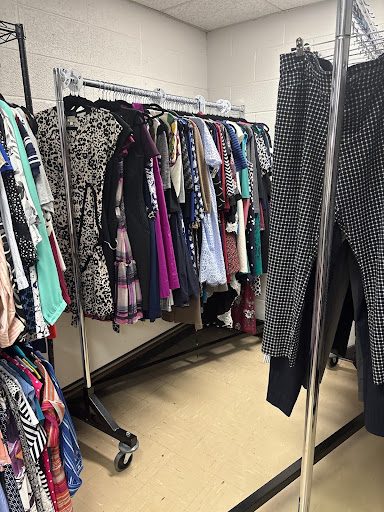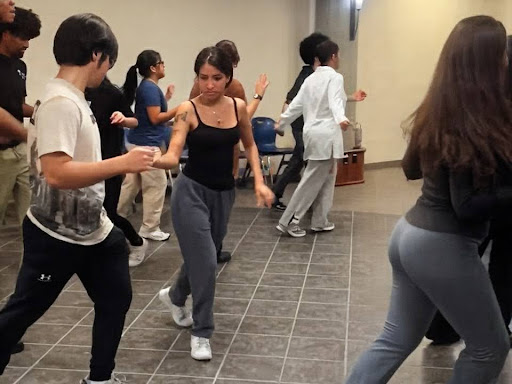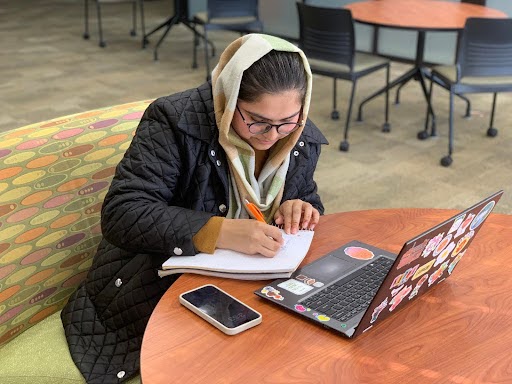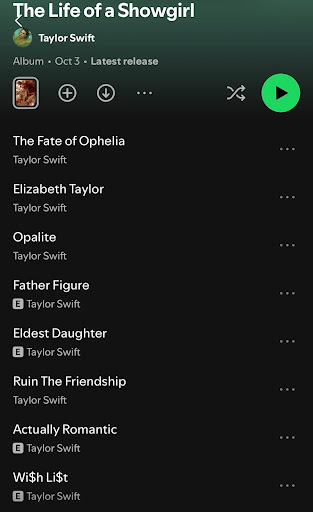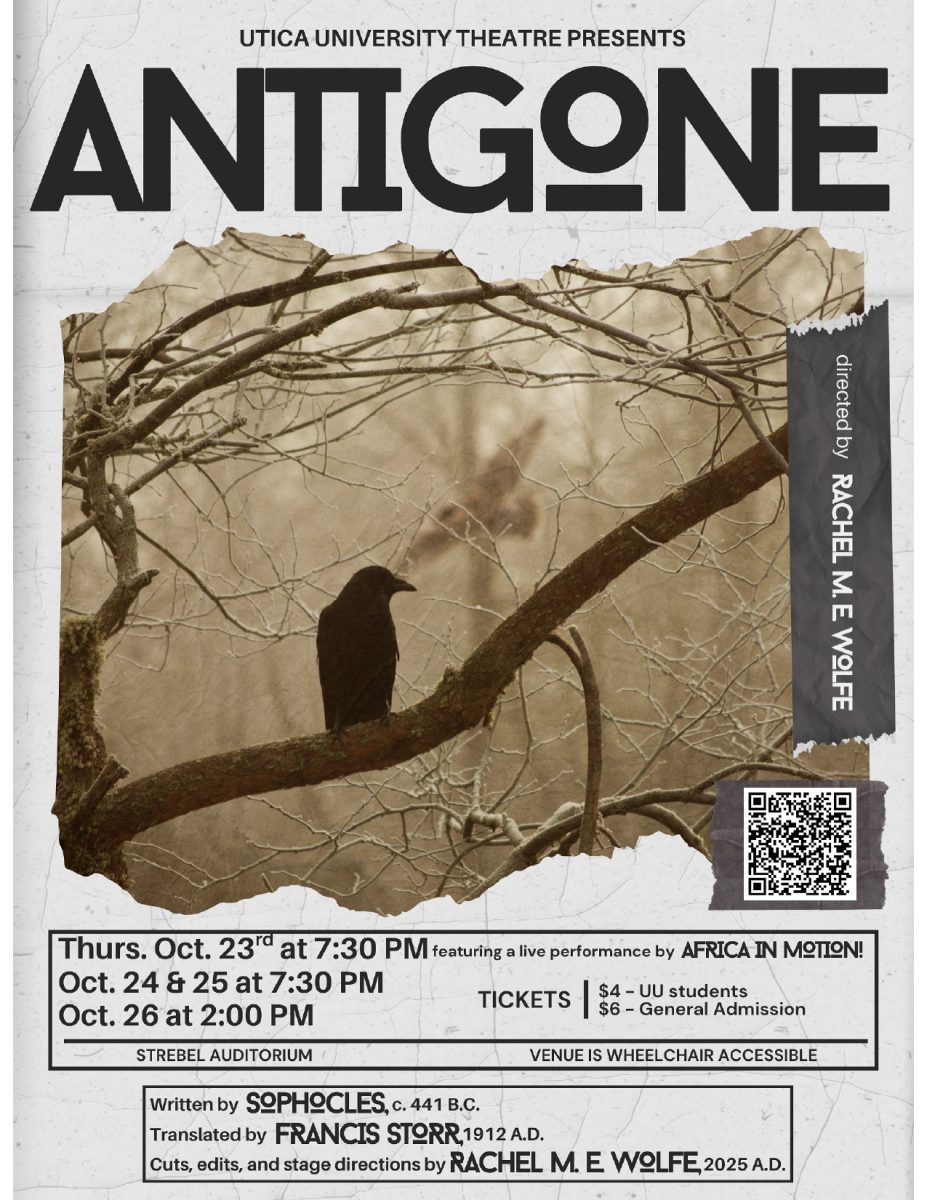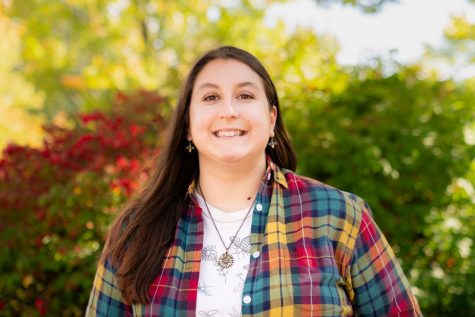Film Review: The Premiere of ‘Utica: The Last Refuge’
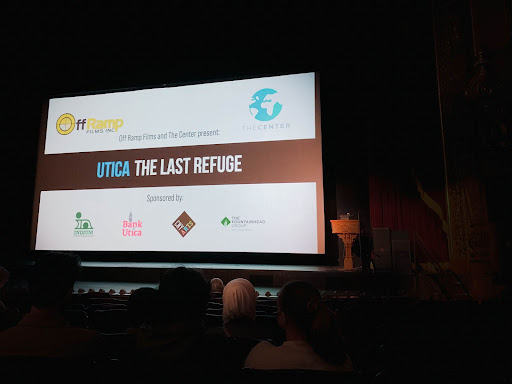
Image from the Stanley Theater during the premiere of ‘Utica: The Last Refuge’.
November 18, 2021
Utica: The Last Refuge is a documentary directed by Loch Phillipps that shares the powerful story of the Azein family making a new life in Utica after spending years in an Ethiopian refugee camp. It also highlights The Center for Refugees in Utica and what they do to help the refugee population.
The documentary, which premiered at the Stanley Theatre on Saturday, Nov. 13, takes the watcher on an emotional journey from the first steps the family takes off their plane, to over one year later and how they continue to progress in their new home.
The first time the Azein family is seen is their arrival at Syracuse International Airport. The family of four does not know very much English and they share one suitcase between them. Once they arrive at their starter apartment, one of the first things their guide shows the father is how to turn on the gas stove for cooking and to inform him that it is the most dangerous thing there.
As we continue to follow their journey and watch them progress, it is clear that there are many ups and downs with this new life and home. The language barrier can cause a struggle and money can be tight in the beginning, but one thing that was seen immensely in the film is how hard-working and persevering the families are, as no one gives up. Even after all of the hardships and struggles they have been through, someone is always smiling.
“When you build a system of kindness, you build something that lasts and makes the kindness more profound,” Phillipps said during Q&A after the premiere.
Throughout the documentary, viewers also get to see different refugees and hear about their journeys along with learning more about The Center in Utica and everything they do. The Center works very closely with all of the refugee families and helps find housing, teaches a plethora of important skills and helps to find jobs in the community.
Several of the workers at The Center are refugees who want to continue to help people in the same way someone helped them when they first arrived. We follow the story of Hassan Abbas, a Palestinian from Iraq, who works at The Center. The documentary showed his emotional journey to becoming an American citizen.
“We take it all for granted and to imagine what all of these guys went through is a big thing,” said David Chanatry, a co-producer of the documentary and Utica College professor. “This film is a humanitarian story, an economic story and a survivor story.”
The city of Utica is home to thousands of refugees who The Center has helped to resettle throughout the years. The number comes out to more than 16,000 refugees since its creation in 1979.
The Center provides new refugees with resources to start building lives in the city of Utica. This includes finding housing, helping to secure jobs and hosting a variety of classes. Refugees who have resettled here help to build and strengthen the community by fixing homes, starting local businesses and creating a sense of community, according to The Center’s website.
The documentary highlighted some of the struggles The Center has faced starting in 2017 with new legislation surrounding refugees and the amount that can be resettled in the country. As funds are provided to The Center per refugee, this caused a financial blow. But even with this setback, they continue to push through hardships and help as many people as they can.
“The good folks at The Center are working tirelessly to help integrate people into society but the pipeline is broken because over the last few years, the program has been cut back substantially,” Chanatry said.
During a Q&A after the documentary, Shelly Callahan, executive director of The Center, said things were starting to look up with new legislation regarding refugees and The Center is strong.
“We are here, we are fully functional and we are so excited to do the work we get to do,” Callahan said.
Overall, the story of Utica: The Last Refuge was thought-provoking and did an excellent job at shedding light on an issue that is so large in the community. There are many different problems and battles that these families face that people often don’t realize, from something as large as a language barrier to as small as lighting a gas stove. With the help of The Center, Utica can remain a safe haven for those in need.
“You are never going to know everything about every culture, but understanding filters helps allow for a better understanding of the world,” Callahan said.


